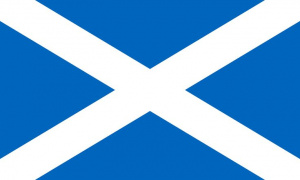Language/Scottish-gaelic/Grammar/How-to-Use-Have
Hi Scottish Gaelic learners! 😊
In this lesson, we will learn how to use "have" in Scottish Gaelic. "Have" is one of the most commonly used verbs in the English language and can be translated in a few different ways in Scottish Gaelic. However, before we dive into the grammar rules, let's talk about some interesting facts about Scottish Gaelic.
Scottish Gaelic is a Celtic language spoken mainly in Scotland by over 57,000 people. Although it has a rich literary tradition, it is considered to be an endangered language. The language has been impacted by the historical events of Scotland such as the suppression of Gaelic during the 18th century.
To improve your Scottish Gaelic Grammar, you can also use the Polyglot Club website. Find native speakers and ask them any questions!
"Have" in Scottish Gaelic[edit | edit source]
In Scottish Gaelic, "have" can be translated in a few different ways depending on the context it is used in. These include "bhith ag", "fhuair", "fac" and "aig". Let's explore each one of them with examples.
"Bhith ag"[edit | edit source]
"bhith ag" is used to express possession or ownership. It's formed with the auxiliary verb "bhith" and the preposition "ag".
The table below shows some examples of "bhith ag" in sentences:
| Scottish Gaelic | Pronunciation | English |
|---|---|---|
| Tha an t-acras orm | Ha unh tah-kruhs orm | I am hungry (lit. "hunger is on me") |
| Tha an leabhar agam | Ha unh leh-vur agam | I have the book (lit. "the book is at me") |
| Tha a' bhainne agam | Ha uh vah-nyuh agam | I have the milk (lit. "the milk is at me") |
"Fhuair"[edit | edit source]
"fhuair" is used as the past tense of "aig" which means "have" in its basic form. You would use this when you want to talk about something you had in the past but no longer possess.
The table below shows some examples of "fhuair" in sentences:
| Scottish Gaelic | Pronunciation | English |
|---|---|---|
| Fhuair mi litir bho mo charaid | Uw-ur mee le-at-ir vo muh kar-utchk | I got a letter from my friend (lit. "I had a letter from my friend") |
| Fhuair sinn bàta | Uw-ur shin bah-ta | We had a boat (but don't have it anymore) |
"Fac"[edit | edit source]
"fac" is used to indicate the completion of a task or the receipt of something. It can also be translated as "got" in some cases.
The table below shows some examples of "fac" in sentences:
| Scottish Gaelic | Pronunciation | English |
|---|---|---|
| Chuala mi an fheadhainn-sa bhon neach-ciùil | Hoo-la mee un-yain-so von nyahch-kew-il | I got/had these from the musician (lit. "I heard these from the musician") |
| Chuala sinn e | Hoo-la shin eh | We got it (lit. "We heard it") |
"Aig"[edit | edit source]
"aig" is used to indicate something that you have or possess. This is a basic way of saying "I have" or "you have".
The table below shows some examples of "aig" in sentences:
| Scottish Gaelic | Pronunciation | English |
|---|---|---|
| Tha leabhar agam | Ha leh-vur agam | I have a book |
| Tha coin agaibh | Ha cohn ag-eef | You have a dog |
It's important to note that "aig" and "fhuair" can also be used to indicate a past-tense possession of something, depending on the context of the sentence.
Dialogue[edit | edit source]
Let's practice using "have" with a dialogue. In this dialogue, a person is asking about someone's belongings.
Person 1: An eil làmh annad airson an làmhainn? (Do you have a hand for the glove?) Person 2: Tha, tha làmh agam ann. (Yes, I have a hand in it.)
Conclusion[edit | edit source]
In conclusion, "have" can be translated in a few different ways in Scottish Gaelic. The most common ones are "bhith ag", "fhuair", "fac" and "aig". Use them to describe possession, past-tense possession, and the completion of a task.
➡ If you have any questions, please ask them in the comments section below.
➡ Feel free to edit this wiki page if you think it can be improved. 😎
Now that you've completed this lesson, don't stop learning! Check out these related topics: Conditional Mood & How to Use Be.
Other Lessons[edit | edit source]
- Personal pronouns
- How to Use Be
- Future Tense
- Plurals
- Adjectives
- Negation
- Give your Opinion
- Conditional Mood
- Pronouns
- Questions

